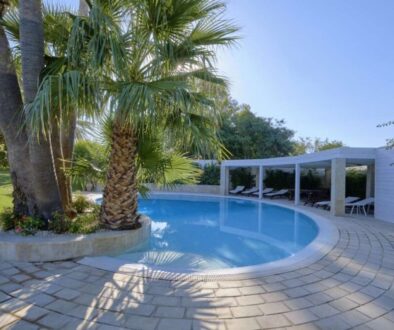How to Spot an Overpriced Pool Route
When it comes to investing in a pool route, understanding the value of the business you are purchasing is critical. Spotting an overpriced pool route can save you from significant financial loss and ensure you make a sound investment. In this article, we will explore the key indicators of overpriced pool routes, provide actionable insights, and equip you with the knowledge you need to navigate the pool maintenance industry’s buying landscape effectively.
Introduction
The pool maintenance industry is booming, and many entrepreneurs are considering investing in pool routes as a way to enter this lucrative market. However, with opportunities come risks, particularly when it comes to pricing. Overpaying for a pool route can hinder your business’s profitability and growth, making it essential to know how to evaluate the cost of a route accurately. In this blog post, we will discuss how to identify overpriced pool routes, the factors influencing their prices, tips for negotiation, and the importance of working with a qualified pool business broker like Tower Business Brokers, Inc.
Understanding Pool Route Valuation
- The first step in spotting an overpriced pool route is to understand how pool routes are valued. Generally, the value of a pool route is determined by several factors, including the number of clients, the revenue generated, the condition of the equipment, and the geographical location.
- According to industry standards, a typical pool service route can sell for anywhere from 1.5 to 2.5 times the annual revenue. Understanding this rule of thumb will help you establish a baseline when evaluating potential purchases.
- Additionally, you should factor in the operating costs associated with maintaining the route, such as labor, chemicals, and equipment repairs, which can significantly impact overall profitability. For instance, if a pool route generates $100,000 in annual revenue but has $80,000 in operational costs, its true value may be far less than expected.
When assessing a pool route’s value, look at its client retention rate and customer satisfaction levels. A high retention rate often correlates with stable revenue and an established customer base, making the route more valuable. Conversely, if the previous owner struggled to maintain customer relationships, the route’s worth may be inflated due to the potential for client turnover.
Researching Market Rates
- Another crucial aspect of identifying overpriced pool routes is conducting thorough market research. Knowing the average market rates for pool routes in your desired area, such as Florida or Texas, can provide valuable context when evaluating prices.
- In Florida, for example, the demand for pool service is high due to the state’s warm climate and abundance of residential pools. Consequently, pool routes in this region may command higher prices compared to less populous areas. Conversely, if you are looking at pool routes for sale in Texas, understanding local market dynamics, including competition and client demographics, is essential for accurate pricing assessments.
- Utilize resources like Pool Routes for Sale to compare listings and gain insights into pricing trends. Additionally, networking with other pool service professionals or consulting with a knowledgeable pool business broker can equip you with local market insights and help you make informed decisions.
While you dive into your research, don’t rely solely on advertised prices. Instead, analyze completed sales in the area to understand what buyers are actually paying for similar routes. If a route is priced significantly higher than the average, it may be overpriced and require further justification from the seller.
Evaluating the Financial Health of the Route
- To determine whether a pool route is overpriced, evaluating its financial health is paramount. Request detailed financial records covering at least the past three years, including profit and loss statements, tax returns, and client invoices.
- Look for signs of consistent revenue growth. A route that has experienced steady income increases over several years demonstrates viability and a solid customer base. Conversely, if the financial records indicate erratic revenue or declining profits, it may raise red flags about the route’s future potential.
- Additionally, assess the route’s operational efficiency. High overhead costs, such as expensive equipment or excessive labor expenses, can erode profitability and reveal that the route may not be worth the asking price. A thorough analysis of these financial documents can provide insight into whether the seller’s asking price aligns with the route’s actual value.
Finding opportunities for improvement can also provide leverage in negotiation. If you identify areas where the previous owner hadn’t optimized expenses or client retention, you can present these findings when discussing the purchase price.
Assessing Client Quality and Retention
- The quality of clients in a pool route can significantly impact its value. A route with a large number of low-paying or infrequent service customers may be less desirable than a smaller route with high-value, loyal clients.
- Investigate the demographics of the customer base. Clients who own higher-end properties typically require more frequent service and can yield higher profits for the business. Additionally, a client base that includes long-term customers presents stability – a key consideration when assessing route value.
- To better understand client retention, request information from the seller about client relationships and service history. High turnover rates can indicate dissatisfaction and potential future losses in revenue, leading to an overpriced valuation.
Moreover, consider the geographic distribution of clients. A route with clients located in close proximity to one another can reduce travel times and expenses, thereby enhancing profitability. Routes with clients scattered across a broad area may incur higher operational costs, making them less appealing at inflated prices.
Negotiation Strategies for Pool Routes
- Once you have gathered all the relevant information and have established a baseline for fair pricing, it’s time to negotiate. Start by presenting your findings to the seller and highlight any discrepancies between their asking price and your evaluation.
- Be prepared to discuss the operational costs and financial health of the route; this demonstrates that you have done your homework and are serious about making a fair offer. Offering a lower price based on factual evidence can lead to a healthier negotiation dynamic where both parties feel heard.
- Utilize the assistance of a pool business broker, such as Tower Business Brokers, Inc., to facilitate discussions and ensure you are getting the best deal possible. Brokers have experience negotiating pool route sales and can provide valuable insights into market conditions and pricing trends.
- If the seller is unwilling to budge on the price, consider asking for favorable terms, such as seller financing or additional training and support post-sale. These factors can offer long-term value, even if the upfront price remains unchanged.
Furthermore, knowing your budget and sticking to it is essential while negotiating. Setting a maximum price you’re willing to pay helps maintain focus on finding a route that meets your financial goals without overspending.
Importance of Professional Guidance
- Navigating the complexities of purchasing a pool route can be overwhelming. Engaging with a professional pool business broker can provide clarity and guidance throughout the process. Brokers can help you understand market conditions, identify potential pitfalls, and negotiate terms that align with your financial objectives.
- With experience in the pool maintenance industry, brokers like Tower Business Brokers, Inc. can introduce you to reputable sellers and ensure you’re equipped with the knowledge needed to spot overpriced routes. Their expertise can streamline the purchasing process and increase your chances of finding a profitable route that meets your needs.
- Furthermore, professional brokers can assist with due diligence, ensuring that all necessary documents are in order and that there are no hidden liabilities attached to the pool route you’re considering.
By utilizing professional guidance, you can focus your efforts on growing your new business rather than getting bogged down by the complexities of the buying process.
Conclusion
Identifying an overpriced pool route is crucial for safeguarding your investment in the pool maintenance industry. By understanding how pool routes are valued, conducting thorough market research, evaluating financial health, and leveraging professional guidance, you can make informed decisions about your investment.
Remember, purchasing a pool route not only provides a path to immediate revenue but also opens doors to long-term growth and stability. If you’re considering investing in a pool route, be sure to explore options available through Pool Routes for Sale and take advantage of the expertise offered by experienced brokers.
Whether you are a newcomer or a seasoned professional looking to expand your operations, being informed and vigilant will lead to a successful pool service business. Start your journey today and ensure you invest wisely in your future success!



